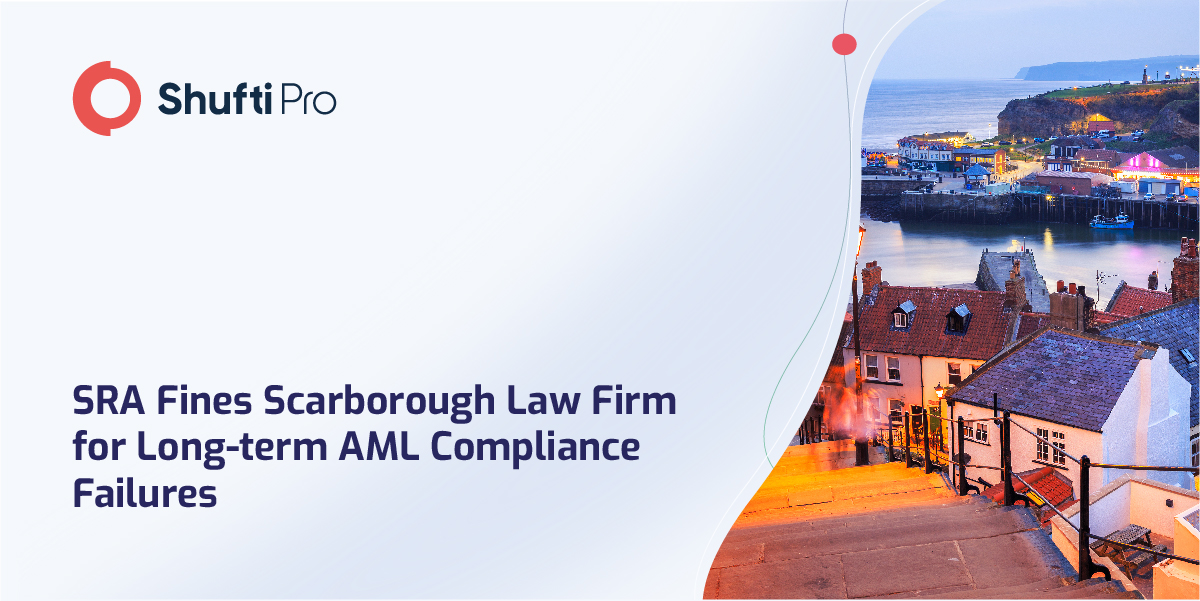SRA Fines Scarborough Law Firm for Long-term AML Compliance Failures

The Solicitors Regulation Authority (SRA) has fined Scarborough law firm Pinkney Grunwells Lawyers LLP £2,000 and demanded £600 in costs for not complying with Anti Money Laundering (AML) regulations.
Pinkney Grunwells Lawyers was fined for exhibiting “a disregard for statutory and regulatory obligations” throughout its three-year period of non-compliance with Anti Money Laundering (AML) regulations. Scarborough law firm consented to pay the £2,000 fine as part of a regulatory settlement arrangement with the Solicitors Regulation Authority (SRA).
In 2020, the company informed the SRA that 40% of its business was conveyancing, falling under the jurisdiction of the 2017 Money Laundering Regulations and that its enterprise risk assessment met those regulatory obligations. However, an investigation launched shortly after a request from the SRA’s AML proactive monitoring unit revealed this was not true.
Customers, jurisdictions, services/products, delivery methods, and transactions are the five main risk categories that must be evaluated as part of the overall AML process, and the firm has not addressed the final one. Also, the check “failed to have sufficient regard for the Legal Sector Affinity Group guidance, our sectoral risk assessment, and warning notice”. There were no compliant policies, processes, or controls to prevent money laundering.
The omissions included how to recognize and monitor unusual transactions, examine transactions with no obvious legal or economic purpose, identify and verify clients, its stance on the origin of funds, and transfers in high-risk countries.
In addition, Pinkney Grunwells could not produce documentation of the employee training it claimed to have provided and failed to conduct appropriate personnel screenings during employment.
The SRA contended that an examination of a sample of customer data revealed numerous flaws, including negligence to maintain records and the failure of fee-earners to collect proof of the source of funds.
The regulator stated: “The conduct showed a disregard for statutory and regulatory obligations and had the potential to cause harm, by facilitating transactions that could have led to money laundering (and/or terrorist financing)… The lack of compliance showed an AML control environment failing at the firm.” The fine was “a proportionate outcome in the public interest because it creates a credible deterrent to others and the issuing of such a sanction signifies the risk to the public, and the legal sector, that arises when solicitors do not comply with anti-money laundering legislation and their professional regulatory rules”.
As a mitigating factor, there was no proof that the misbehavior caused harm to customers or other parties, and the company did not profit financially from it. The firm has “shown remorse for its actions and remedied the breaches”.
Suggested Read: SRA Receives Fewer AML Violation Reports from England & Wales Despite Sanctions Drive











